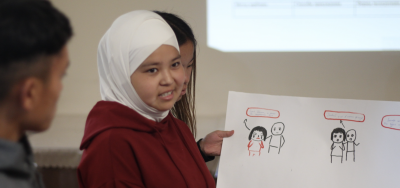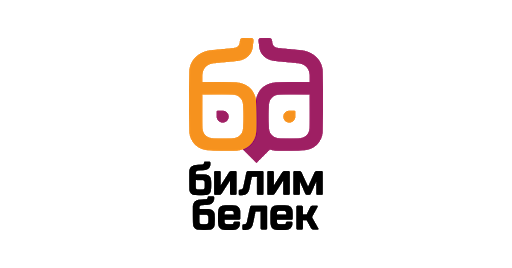
Everyone has the right to education
Every child should learn, develop and contribute to the life of his community. In Kyrgyzstan, care leavers must leave the institution at the age of 15-16 and be ready to survive on their own, earn money for food, clothing, and transportation costs. Young people very often do not realize that education must be taken seriously, that a set of required skills and knowledge can provide them financial stability now and in the future. According to UNICEF, the lack of education makes it difficult for these children to adapt and integrate into society after leaving care institutions. Such a difficult life situation forces them to commit crimes, remain homeless, and become victims of the human trafficking compare to children who grew up in a family.
Observations and researches of the “Oasis” foundation show that after leaving care institutions young people have a limited choice of professions when entering professional educational institutions. They do not have sufficient financial resources to enter private colleges and universities, and do not have enough information on how to get support from government to continue studies and internships. Only 1% of care leavers have the opportunity to enrol in higher educational institutions of Kyrgyzstan, more than 90% of young people do not know about grants that are provided by the government for vulnerable children.
Bilim Belek Educational Programme
In 2017, Oasis Foundation initiated a sustainable Bilim-Belek program (the word “bilim” means “education, and the word “belek” means “gift” from Kyrgyz language) to provide access to formal and informal education for at-risk youth: care leavers; social orphans, and victims of gender-based violence (GBV) and trafficking in persons (TIP). Within this program, at-risk youth have access not only to education, but also Oasis Team support participants through purchasing necessary equipment for school/university/colleges/courses, covering transportation costs, and mentoring. For now, more than 120 at-risk youth received support through this program, of which more than 60% are survivors of gender-based violence and trafficking. Oasis’ Bilim-Belek program is supported on a sustainable basis by individual donations, business organisations, and through permanent donations from Kairesh Foundation (Switzerland).
Oasis’ beneficiaries spoke of lack of access to learning opportunities as a result of structural discrimination against care leavers, social orphans, children in conflict with the law from marginalized communities, as well as girls in some context. They cited poverty, labour exploitation, child labour, forced marriage, forced crime as serious barriers to accessing education. They also reported that lack of funding to pay for education – including school supplies, transportation, and in some cases direct education costs – is another key barrier, along with lack of awareness of the importance of education among parents in some vulnerable communities.
To ensure that at-risk youth have access to learning opportunities and counter the discrimination that leads to exclusion from education, Oasis constantly conduct a large-scale information awareness campaign about the importance of education in tackling poverty, gender inequality, and gender-based violence among vulnerable communities. Additionally, Oasis Team work directly with social services under the Ministry of Labour, Social Welfare and Migration, Chilrden’s Ombudsman to deliver comprehensive support for at risk youth.

Ensuring access to education and a decent future for vulnerable youth through Bilim Belek program www.bilimbelek.kg


